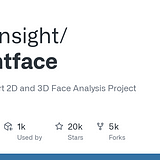AI Cupid or Conman: How ChatGPT is Revolutionizing Romance Scams

For centuries, love has been a battlefield, and the arena of online dating has introduced a whole new class of warriors: romance scammers. Armed with charm, flattery, and fabricated personas, these digital deceivers have preyed on the vulnerable, extracting millions through elaborate deceptions. But the landscape has shifted. Enter ChatGPT, the advanced language model from OpenAI, and its impact on the romance scam industry is nothing short of seismic.
Even before ChatGPT and other AI-based chatbots or products, romance scammers had no problem finding victims; in some cases, you would not think that people can fall for the stories, sometimes for years, but if you are in doubt, I suggest you watch a few of the cases reported by these guys at Catfished.

ChatGPT’s Charm Offensive:
ChatGPT possesses an unnerving ability to mimic human conversation. It can tailor its responses to individual preferences, generate elaborate backstories, and engage in emotionally charged exchanges. This makes it ideal for scammers, who can craft highly personalized narratives bypassing traditional red flags. Imagine a “Romeo” who flawlessly recalls your favorite author, shares your passions for obscure hobbies, and even writes you sonnets. ChatGPT can create that illusion, blurring the lines between reality and carefully constructed fiction.
Efficiency Through Automation:
Scammers operate under the law of diminishing returns. Cultivating multiple victims simultaneously requires significant time and effort. ChatGPT changes the game. Its ability to automate large parts of the interaction allows scammers to scale their operations, juggling dozens of conversations simultaneously. They can script initial approaches, personalize responses based on keywords, and even generate emotionally manipulative messages at scale. This frees up precious resources for targeting high-value victims and crafting compelling personas.
The Rise of the AI-Powered Catfish:
Traditionally, romance scams relied on stolen photos and fabricated identities. ChatGPT eliminates the need for such risky practices. Using deepfake technology, scammers can create AI-generated faces that match their desired persona perfectly. This adds a layer of authenticity that can easily trap unsuspecting victims. Imagine being captivated by a charming video call with your “soulmate,” only to discover later that AI fabricated it. Now, add to this the options of tools like Midjourney combined with FaceSwap and Discord. It's just a simple command to swap faces on pictures. There is no more need for Photoshop skills, and how scary that can be. I will show a simple example, but first, here are some links to look into:


The source is me, but with a 1 line command, I was able to put my face in those pictures found online; now, this can be fully automated and aid the scammers in mass generating new sets of images from 1 face pic, making it a lot easier to appear natural and authentic.
The source was:

Sample outputs:



There is no limit to the opportunity this gives to scammers.
The Psychological Weaponization of AI:
ChatGPT isn’t just about mimicking conversation; it can analyze and manipulate human emotions with chilling precision. By studying vast amounts of data on human psychology and online behavior, scammers can tailor their tactics to exploit individual vulnerabilities. ChatGPT can identify insecurities, mirror emotional states, and even predict reactions, allowing scammers to orchestrate emotional rollercoasters that leave victims feeling deeply attached and susceptible to manipulation. It really can be the perfect tool for those scammers hiding on the other side of the world trying to get as much money out of their victims as possible/
The Dark Side of the Love Algorithm:
The potential for abuse extends beyond individual scams. Imagine a scenario where malicious actors utilize AI to weaponize romance on a broader scale. Bots could be deployed to sow discord on dating platforms, manipulate public opinion through engineered emotional narratives, or even target specific individuals for political or personal gain. The possibilities are chilling, raising ethical concerns about the weaponization of AI in the realm of human emotions.
Navigating the New Romance Frontier:
So, is love in the age of AI doomed? Not necessarily. While ChatGPT presents new challenges, it also empowers us to develop better detection tools and awareness strategies. Here are some ways to stay safe:
- Be skeptical of overly perfect profiles and scripted interactions. No real person is without flaws or inconsistencies.
- Beware of rapid emotional escalation and requests for money. Scammers often rush relationships and exploit financial vulnerabilities.
- Verify information independently and avoid video calls solely through AI-powered platforms.
- Report suspicious activity and educate others about the dangers of AI-powered scams.
Ultimately, the battle against romance scams requires a multi-pronged approach. Technology companies must develop better AI detection tools, law enforcement agencies must adapt their strategies, and individuals must remain vigilant and skeptical. By understanding the power of ChatGPT and its potential for manipulation, we can navigate the new frontier of online love with caution and an informed heart.
Remember, in the digital labyrinth of love, trust your instincts, keep your guard up, and never underestimate the cunning of AI-powered romance scams. Stay safe, skeptical, and open your heart, but only to those who have earned it the old-fashioned way: through genuine connection and shared vulnerability.
Delving Deeper into the Digital Deception: ChatGPT and the Reshaped Romance Scam Landscape
Specific Examples of ChatGPT’s Deceitful Dance:
- The Personalized Pitch: Imagine swiping through dating profiles and encountering someone who not only shares your love for obscure 80s synth-pop but also remembers your fleeting mention of wanting to visit Iceland’s ice caves. ChatGPT crafts these bespoke profiles, analyzing your social media, online activity, and even past conversations to build a digital echo chamber that traps you.
- The Emotional Escalator: A slow burn built with carefully crafted messages, “accidental” late-night calls filled with whispered vulnerabilities, and perfectly timed declarations of love — ChatGPT orchestrates this emotional rollercoaster, exploiting your desire for connection and leaving you vulnerable to manipulation.
- The Financial Finesse: Once hooked, the script switches. “Emergencies” arise — a sick family member, a stolen passport, a business deal gone wrong. ChatGPT crafts persuasive pleas for financial assistance, preying on your emotional investment and trust. However, the underlying reasons are bound to be the same, since there are only so many possible reasons why somebody would have to ask you for your hard-earned money.
- The Ghosting Gambit: Just as abruptly as it began, the romance vanishes. Calls go unanswered, messages hang frozen, and the once doting persona disappears into the digital ether. Having secured their financial gain, the scammer moves on to the next target, leaving their victim heartbroken and questioning their own judgment.
Deepfakes: The Digital Doppelganger’s Disguise:
Imagine gazing into the eyes of your online love, their every smile and frown seemingly real. Deepfake technology, powered by AI, creates these hyper-realistic video and audio simulations. Scammers can craft digital doppelgangers based on stolen photos or even create entirely new faces, adding an unsettling layer of authenticity to their deceptions. This paired with tools like the above-mentioned midjourney/swapface will make it so much harder today to spot the fakes.
The Psychology of Prey: Vulnerability and Manipulation:
Researchers like John Bowlby and Mary Ainsworth have long studied attachment styles, highlighting our inherent need for connection. Scammers exploit this vulnerability, mirroring our desired attachment styles and exploiting our insecurities. ChatGPT analyzes online behavior and identifies keywords like “recently divorced” or “seeking adventure,” tailoring its approach to trigger specific emotional responses.
Case Studies: From Pixels to Profits:
- The Crypto Conundrum: In 2023, a scammer used a deepfake of Elon Musk to promote a fake cryptocurrency, netting millions before being exposed. The case highlights the potential for AI-powered scams to reach wider audiences and inflict more significant financial damage. You can read more about this case here: https://www.bitdefender.com/blog/hotforsecurity/fake-elon-musk-crypto-giveaway-scam-campaigns-run-rampant-on-tiktok/
- The Catfish Caper: A 2022 investigation revealed a network of romance scammers leveraging AI-generated profiles and deepfakes to target victims across platforms. The case emphasizes the growing sophistication and scale of these operations.
The Ethical Minefield: AI, Dating, and the Future of Love:
- Weaponized Manipulation: Imagine AI bots sowing discord on dating platforms, exploiting political divides, or spreading misinformation to influence elections. The potential for AI misuse in online relationships raises serious ethical concerns.
- The Dehumanization of Connection: Will reliance on AI-powered algorithms for finding love diminish our ability to forge genuine, unscripted connections? This question challenges us to consider the role of technology in shaping our most intimate relationships.
Staying Safe in the Algorithmic Labyrinth:
There are basic steps you can take to protect yourself from such scams, lets list down the most common ones that are most easily implemented.
- Embrace the Skeptical Stance: If something seems too perfect, it probably is. Be wary of sudden declarations, overly personal interactions, and requests for money.
- Independent Verification is Key: Don’t rely solely on profile information. Conduct Google searches, reverse image searches, and even consider video calls with friends and family to share suspicions.
- Trust Your Gut: If something feels off, listen to your instincts. Don’t be afraid to unmatch, block, or report suspicious profiles.
- Educate Yourself: Stay informed about the latest tactics used by romance scammers. Sharing information and raising awareness can protect others from falling victim.
A Symphony with a Cautionary Note:
Love, in its essence, remains a beautiful melody, a testament to the enduring human capacity for connection. However, the chilling counterpoint of AI-powered romance scams underscores the need for vigilance and awareness. By understanding the deceptive dance of ChatGPT, the unsettling mask of deepfakes, and the psychological vulnerabilities these modern con artists exploit, we can navigate the digital labyrinth of love with a measured heart and a discerning mind. Remember, in this age of algorithmic courtship, trust your instincts, practice healthy skepticism, and never underestimate the cunning of digital deceits. Only then can we ensure that the symphony of love continues to play, its melody unsullied by the discordant notes of technological manipulation.